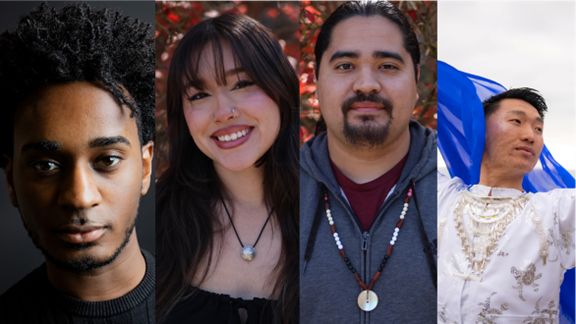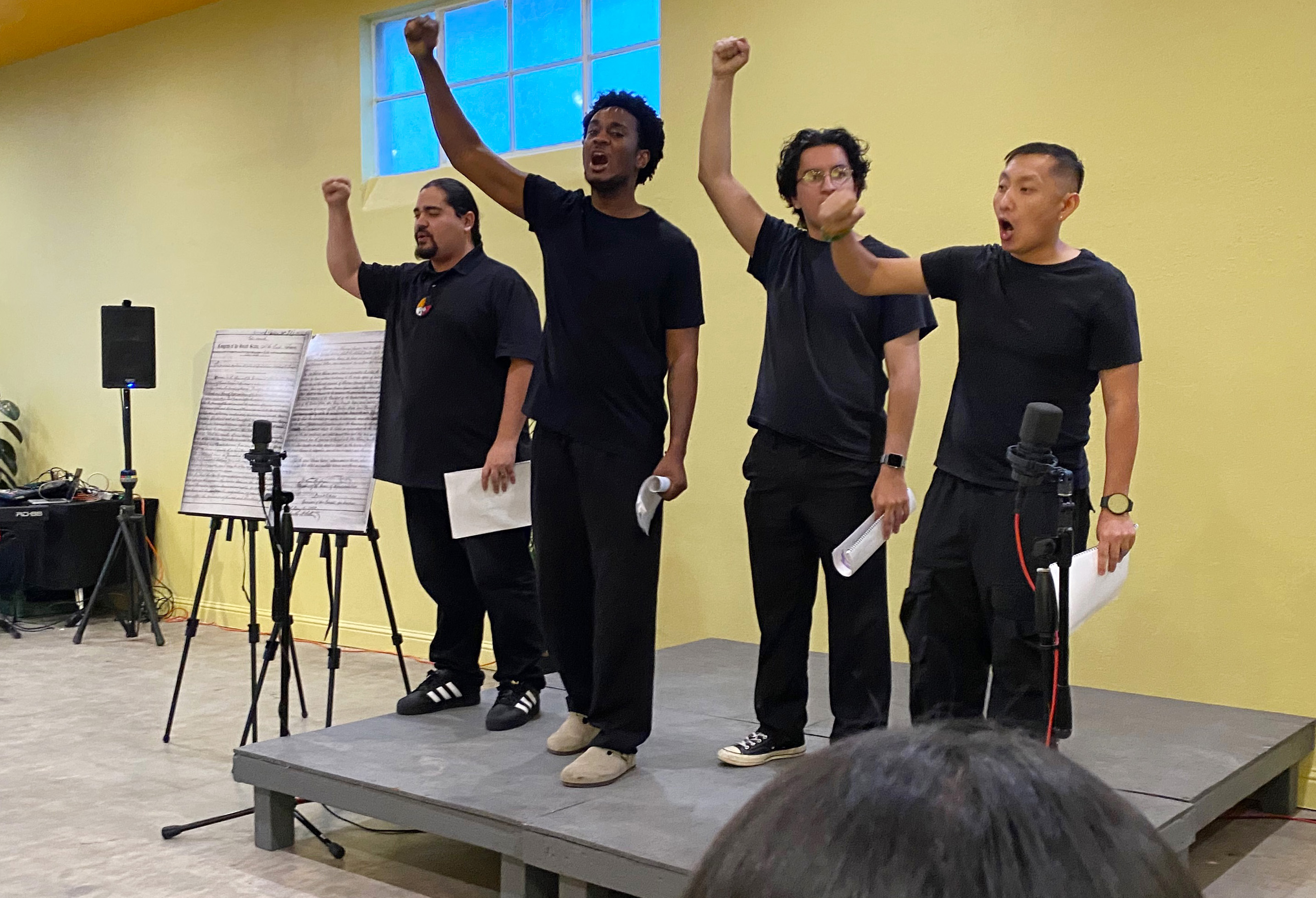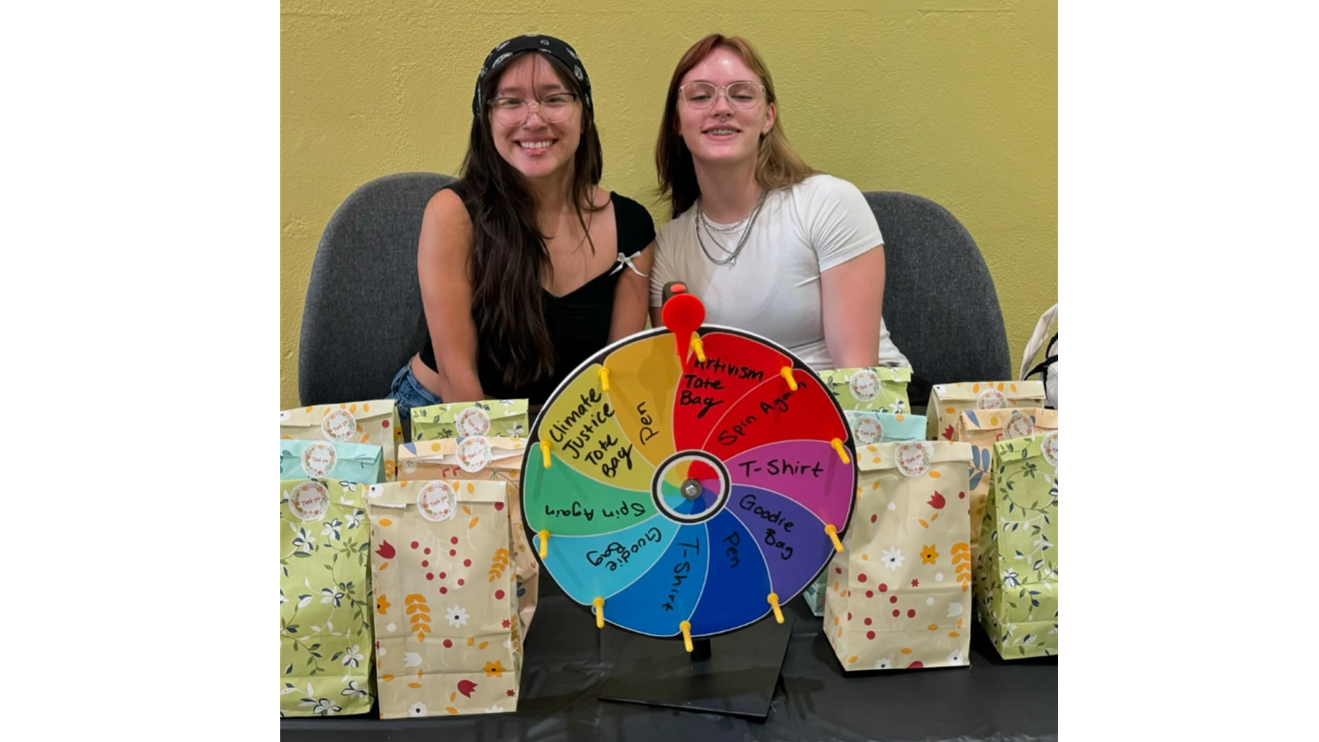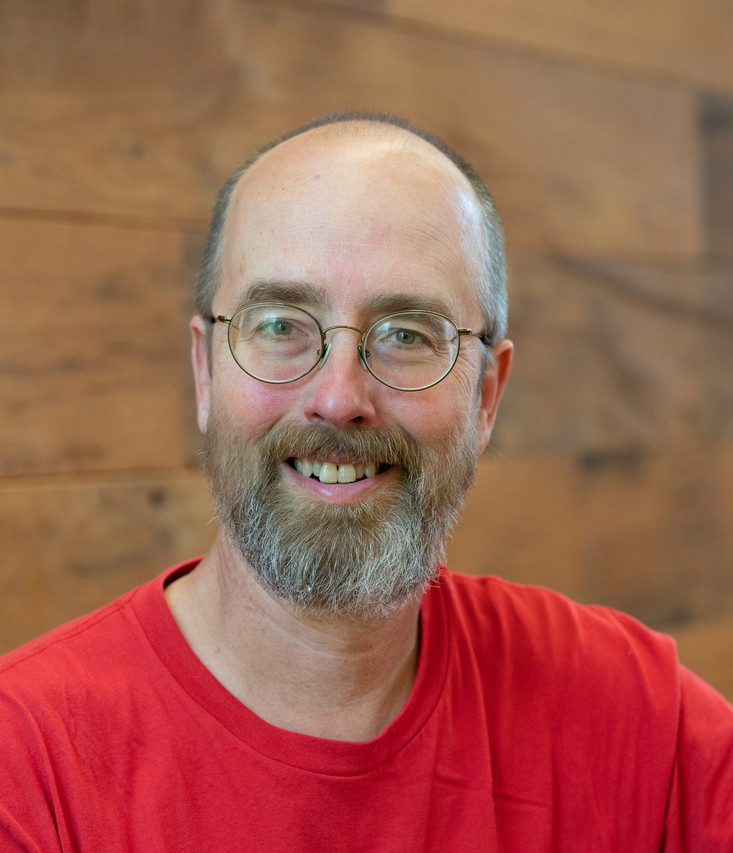
The 2023 ArteVism cohort (from left): Fellow Joshua Slack and Interns Natalie Moreno-Aguilar, Shane Lara, and Tsim Nuj
In the heart of California’s Central Valley, a group of young artists and activists recently concluded a transformative journey. AFSC’s Pan Valley Institute wrapped up its 2023 ArteVism fellowship, a nine-month program that brings together local young leaders working for social change in their communities. This year’s cohort included fellow Joshua Slack and interns Natalie Moreno-Aguilar, Shane Lara, and Tsim Nuj Vang.
Since 2019, the ArteVism fellowship program has fostered civic engagement through creative expression and collective leadership among youth of color in the Central Valley. “The program provides opportunities for youth to produce provocative programming that engages the community and paves the way for a more democratic and equitable region,” says PVI Director Myrna Martinez Nateras.
“With art, you’re able to bring awareness and reach an audience that might not be so inclined to go to a city council meeting or go to anything that’s on the ‘boring’ side,” Joshua says. “Art is able to intercede for the activists. By telling stories and creating vivid imagery, you’re able to lift up the same message in a way that can captivate an audience and enrich their lives.”
He adds, “The ArteVism Program likes to develop that intersection and utilize the talents of the Central Valley. We have a number of talented artists here and a big sense of community belonging.”
A journey of discovery and growth
Over the nine-month program, the ArteVism cohort participated in experiences that enhanced their understanding and inspired their work. From visiting a moving exhibit on "Americans and the Holocaust" at the Fresno Public Library to exploring each other's communities, the fellows deepened their knowledge of their diverse backgrounds as well as their shared struggles.

Actors in “My Relationship with AMERICA” (from left): Shane Lara, Joshua Slack, Carlos Sanchez and Julian Hang. Photo: Eduardo Stanley
In Merced, the team learned about the community outreach and organizing efforts of Natalie and Tsim Nuj, who help youth create powerful murals illustrating the cultural and ethnic diversity of the city. They also traveled to Oakland to visit AFSC’s 67 Sueños program, which helps Latinx youth tell their stories of struggle, resilience, and survival through art and activism.
The ArteVism cohort also took part in PVI’s platicas, or roundtable discussions, addressing a range of issues from land stewardship and climate change to migration in the U.S. During “The Colors of Migration” platica, Shane, Joshua, and PVI Program Coordinator Minerva Mendoza shared their own stories. Their personal histories illustrated the intersections of food production, external migration, internal displacement of Native Americans, and the great migration of African Americans from the South to the North.
Throughout their fellowship, the ArteVism cohort continued to contribute to their communities. In March, after seven farmworkers were killed in a tragic accident, Natalie and others created an altar in the heart of Madera. More recently, the cohort participated in Nu’u Yavi (outdoor market), an event in Madera that celebrated Indigenous women’s culinary heritage and launched an economic mobility initiative to sustain their efforts.
Showcasing talent and inspiring change
The ArteVism fellowship culminated in a grand finale event on July 13. The evening showcased the diverse talents of the cohort, featuring Cuban music, Indigenous poetry, and thought-provoking photography.
Shane performed a poetry ready, sharing with the audience that he had just begun to reconnect with his Indigenous identity five years ago at the age of 20. “A lot of us fell between the cracks in American society and didn’t want to say we were Native American because we could get killed for that,” Shane says. “A lot of us were displaced or lynched. We were born assimilated and didn’t know where we came from. But that’s changing.”
Joshua performed “Code Switch,” his monologue about navigating identity in America as a Black man. He concluded, “Today is the day I’m no longer making anyone else comfortable with my existence.”
A highlight of the event was the performance of “My Relationship with AMERICA,” a theatrical piece exploring the relationships of disenfranchised communities with the concept of America. Written by former ArteVism Fellow Rodolfo Robles-Cruz, the play brought to life the stories of Black, Indigenous, Latino, and Asian youths struggling to find belonging in American history.
As the evening concluded, the ArteVism participants issued a call to action for the audience, urging them to raise their voices and not be silent. Their message resonated with attendees amid an election season that has further dehumanized communities that have long been marginalized.
Through the ArteVism fellowship, these young artists and activists have not only honed their creative skills but have also contributed to building a more inclusive and equitable Central Valley community. They are demonstrating how art can drive social change and foster understanding across diverse communities.

Natalie Moreno-Aguilar (left) and a PVI volunteer welcome people to the ArteVism finale. Photo: Minerva Mendoza
